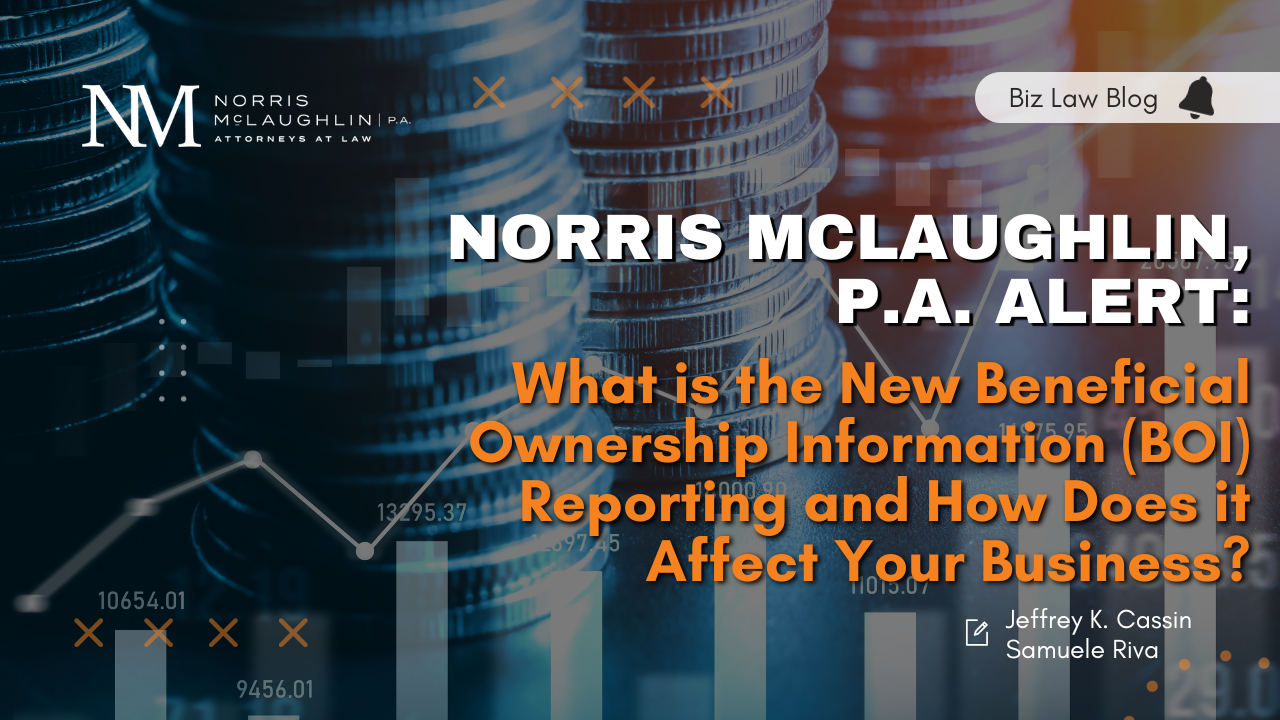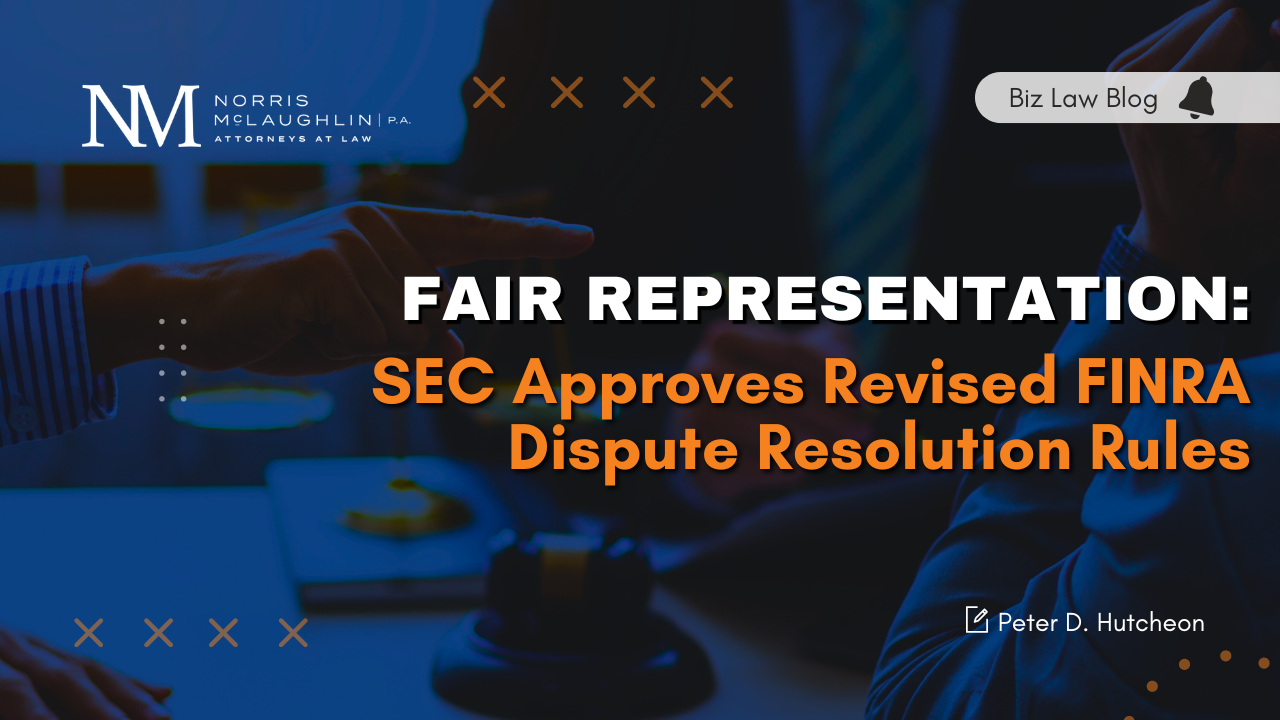What is the New Beneficial Ownership Information (BOI) Reporting and How Does it Affect Your Business?

Commencing Jan. 1, 2024, certain business owners and operators will have to comply with new information retention and reporting requirements for the direct and indirect ownership of privately held entities: the Beneficial Ownership Information (BOI) Reporting under the 2021 Corporate Transparency Act (CTA). Failure to do so may result in the imposition of civil penalties of $500 per day (up to $10,000) or criminal penalties of up to 2 years in prison.
Overview of the Corporate Transparency Act of 2021
In 2021, Congress enacted a new piece of legislation intended to deter money laundering, terrorism and other illegal activities, as discussed in our prior blog here. The law requires certain companies, known as reporting companies, to report information about their beneficial owners to the Financial Crimes Enforcement Network (FinCEN), unless exempt from reporting under the CTA. The required information includes the beneficial owner’s name, date of birth, home address and passport or driving license number, including an image of the chosen document verifying such number. Under the law:
“Reporting company” means either:
(a) a corporation, limited liability company (LLC), limited liability partnership (LLP) or any other entity created by the filing of a document with a secretary of state or any similar office under the law of a state or Indian tribe; or
(b) a foreign corporation, LLC, LLP or other entity that is registered to do business in any U.S. state or tribal jurisdiction.
“Beneficial owner” is defined as any natural person who, directly or indirectly, through any contract, arrangement, understanding, relationship or otherwise:
- exercises substantial control over a reporting company;
- owns 25% or more of the equity interests of a reporting company; or
- receives substantial economic benefits from the assets of a reporting company.
Exemptions
The CTA provides a list of 23 exempted entities, including, but not limited to, broker-dealers, insurance companies, banks and tax-exempt organizations. Importantly, businesses that employ more than 20 employees on a full-time basis in the United States and demonstrate more than $5 million in gross receipts or sales are also exempt from the BOI Reporting.
Filing Due Dates
The deadline for filing the initial BOI reports varies depending on the company’s date of formation, incorporation or registration with the secretary of state or similar body under the laws of that state, as follows:
- If the reporting company was formed, incorporated or registered before 1, 2024, the initial BOI report must be filed by Jan. 1, 2025.
- If the reporting company was formed, incorporated or registered after 1, 2024, the initial BOI report will be due 30 days following confirmation of formation, incorporation or registration from the secretary of state or similar body.
Thereafter, reporting companies must update their BOI reports or correct any inaccurate filing within 30 days after any change or discovery of any inaccuracies.
Additional Considerations
Business owners should consult with an experienced attorney and start evaluating whether their companies fall under the definition of a reporting company. If their companies are subject to the new BOI Reporting requirements, business owners may want to consider amending their governing documents (e.g., operating agreements for LLCs, shareholders’ agreements and by-laws for corporations) to outline these new reporting requirements and provide notice of these recent changes to their shareholders, members or partners, as applicable. Companies may also need to evaluate and implement changes to their internal policies to comply with these new requirements.
Additionally, companies targeting one or more acquisitions in 2024 may also want to be proactive in their legal due diligence to assess whether their potential targets comply with the CTA. Acquirors may also need to craft appropriate escrows and special indemnity provisions in their purchase agreements to protect themselves against this known risk, as well as factor in the cost of updating internal policies to ensure compliance following the closing.
Although FinCEN has not released the BOI report form and the new filing system has yet to be completed, FinCEN appears to remain committed to implementing this new reporting requirement beginning Jan. 1, 2024. Accordingly, companies and their legal representatives should start now to initiate discussions relating to the CTA to ensure prompt compliance in 2024, especially considering the severity of the potential penalties.
The statements in this blog are informational in nature and currently accurate; their continued accuracy is expressly subject to there being no material change in the law. They are neither intended to be comprehensive in all respects, nor to serve as a substitute for professional advice. If this blog raises any questions, please feel free to contact the authors, Samuele Riva, Esq., at sriva@norris-law.com and Jeff Cassin, Esq., at jcassin@norris-law.com.




